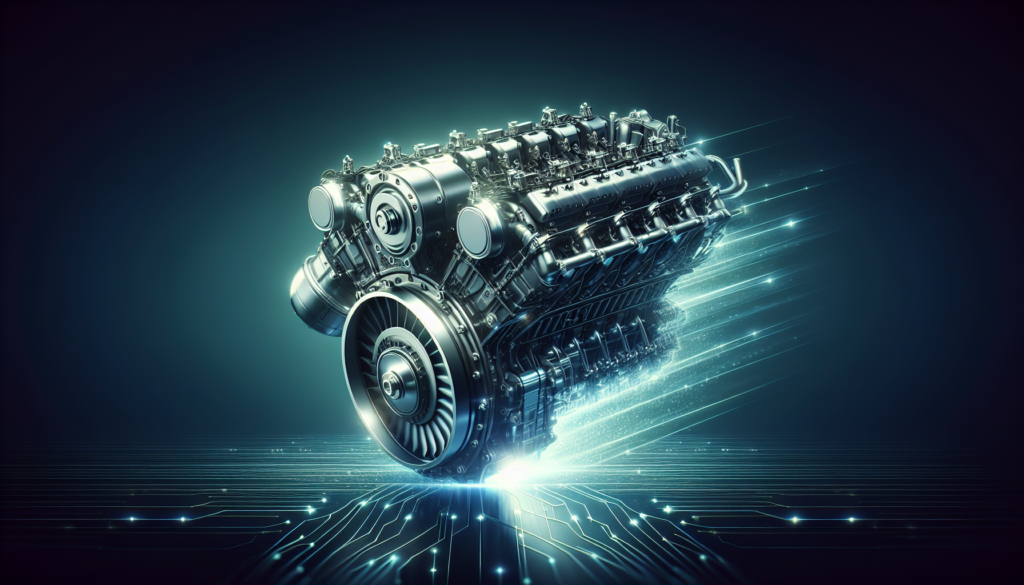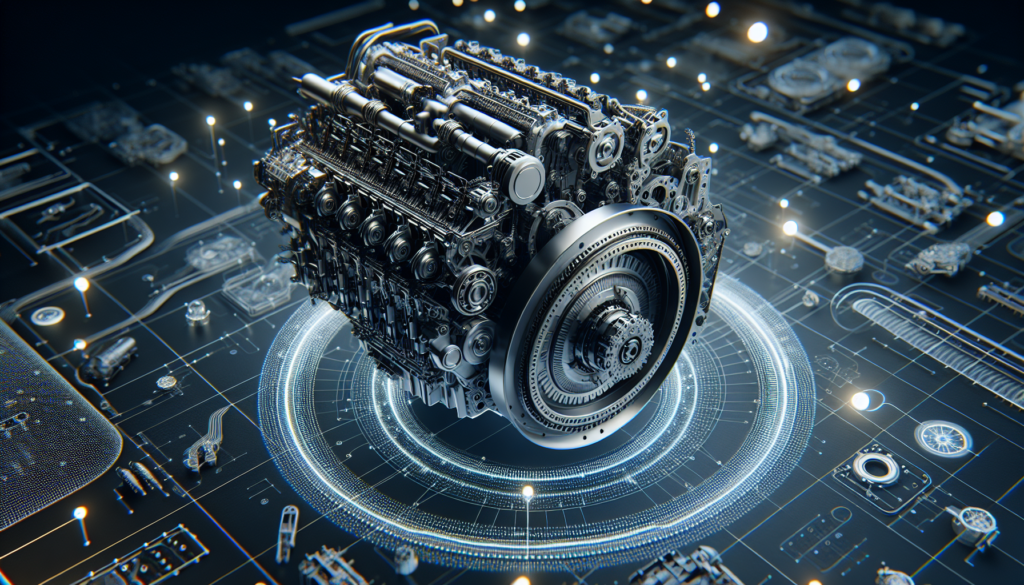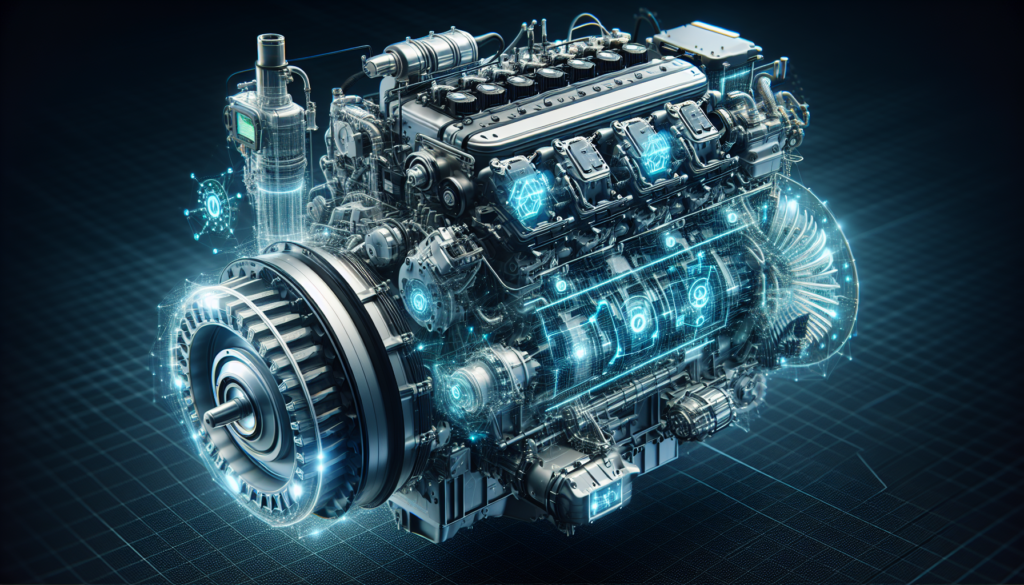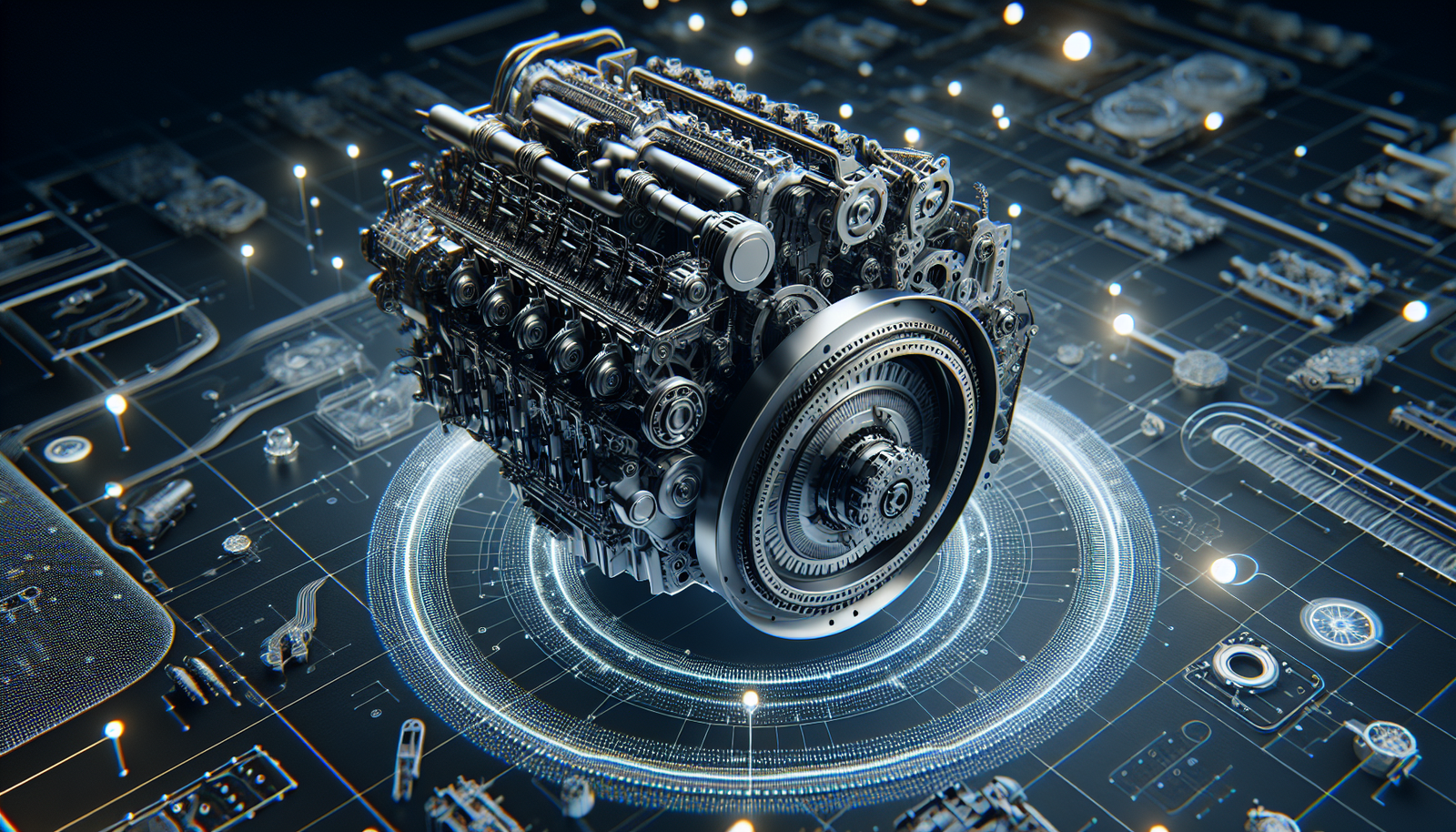You’re living in exciting times. Imagine sailing across the azure waves with a boat engine that not only delivers powerfully efficient performance but also demonstrates exceptional environmental responsibility. “Advancing Technology for Clean and Efficient Boat Engines” lets you explore the seamless blend of power and sustainability taking the marine industry by storm. Discover how top innovators are leading the charge toward cleaner waters and skies, with smart technologies that revolutionize boat engine designs for reduced emissions and increased efficiency. It’s not just about better boating—it’s about creating a better future for all.

Understanding the Need for Clean and Efficient Boat Engines
Boating has long been a popular pastime and a crucial mode of transportation, but with the rise of environmental concerns, the spotlight has been placed on boat engines’ heavy carbon footprint. Therefore, there’s a true, urgent need for clean, efficient boat engines.
Environmental Impact of Traditional Boat Engines
Traditional boat engines, mainly gasoline and diesel fuels, have a significant impact on our environment. They produce large emission of CO2 and other harmful pollutants such as nitrogen oxide and sulfur oxides. Not only do these emissions contribute to the ongoing threat of global warming, but they also have detrimental effects on marine life. These pollutants can trigger algal blooms, which deplete the water’s oxygen concentration, thus creating “dead zones” that are inhospitable for most marine species.
Economic Implications of Inefficient Boating Technologies
Inefficient boating technologies can have a profound economic impact as well. With the rising fuel prices, the operating cost of boats is skyrocketing. Moreover, inefficient engines require more frequent maintenance, adding to the total expenses. Furthermore, as regulatory bodies look to impose stricter emission standards, owners of traditional boats may face significant costs to retrofit their vessels or penalties for non-compliance.
Health Effects of Marine Pollution
Marine pollution from boat engines pose serious health risks too. Prolonged exposure to pollutants such as particulate matter and volatile organic compounds (VOCs) can lead to respiratory issues, cardiovascular diseases and even certain types of cancers. Additionally, these pollutants contaminate seafood, posing health risks to consumers worldwide.
Historical Progression of Boat Engine Technologies
Over the years, boat propulsion has evolved significantly from simple propulsion methods like oars and sails to complex engine technologies.
Evolution from Sails to Engines
The transition from sails to engines marked a major breakthrough in maritime history. More reliable and faster than wind power, the first boat engines significantly changed maritime transportation, commerce, and warfare.
Introduction of Diesel and Gasoline Engines
The turn of the 20th century saw the introduction of diesel and gasoline engines. Diesel engines, known for their reliability and durability, soon became the preferred choice for large ships, while gasoline engines found favor in smaller, recreational vessels due to their higher performance.
Move Towards Electrification and Hybrid Systems
With the ongoing environmental issues and increasing fuel costs, there has been a shift towards electrification and hybrid systems in the past few decades. These technologies promise cleaner, quieter, and more efficient operation compared to their conventional counterparts.

Current State of Boat Engine Technology
Today’s boat engine technology is more advanced than ever before, with options ranging from traditional diesel and gasoline engines to electric and hybrid propulsion systems.
Common Types of Marine Engines
The most common types of marine engines today are four-stroke and two-stroke engines. While four-stroke engines are known for their efficiency and reliability, two-stroke engines are famous for their power to weight ratio, making them ideal for high-speed boats. Diesel engines are popular for commercial boats due to their long lifespan and fuel efficiency, and gasoline engines are often used in recreational boats for their performance.
Emissions Produced by Today’s Engines
Despite technological advancements, today’s boat engines still produce significant emissions. Four-stroke engines and diesel engines tend to be cleaner than two-stroke engines, but all of them emit harmful gases like CO2, NOx, and SOx.
Existing Fuel Efficiency Technologies
Over the years, technology has played a crucial role in making boat engines more efficient. Common fuel efficiency technologies include improved fuel injection systems, turbochargers, and advanced hull designs. Moreover, sailor-interface technologies like electronic chart displays (ECDIS) and onboard monitoring systems have been used to minimize fuel consumption by optimizing navigation and operational efficiency.
Emerging Technologies for Cleaner Boat Engines
As we look forward to a greener future, several emerging technologies promise cleaner boat engines.
Renewable Energy Sources for Boating
renewable energy sources like solar and wind could revolutionize boating. Solar panels and wind turbines can be installed on boats to generate electricity for propulsion. While not suitable for all types of boats, these systems can significantly reduce emissions for smaller, recreational vessels.
Potential of Hydrogen Fuel Cells
Hydrogen fuel cells are another promising option. They produce electricity by combining hydrogen and oxygen, with water being the only by-product. With zero carbon emissions and the potential for renewable hydrogen production, fuel cells could play a major role in clean marine propulsion.
Electric Propulsion Systems
Electric propulsion systems have garnered significant attention in recent years. They offer zero-emission boating, and with advances in battery technology, they’re becoming more practical for a wider range of applications.

Improving Efficiency in Boat Engines
Efficiency improvements aren’t just limited to the introduction of new technologies. There are also significant developments in traditional gasoline and diesel engines.
New Developments in Gasoline and Diesel Engines
Manufacturers have made substantial progress in refining gasoline and diesel engines. Newer models are more fuel-efficient and produce fewer emissions than their predecessors. This is achieved through more precisely controlled combustion, improved fuel injection systems, and more efficient turbochargers.
Hybrid System Innovations
Hybrid systems, which combine conventional engines with electric propulsion systems, offer a good balance between performance and efficiency. Recent innovations in this area have led to the development of more compact, robust, and efficient hybrid systems that can offer significant fuel savings and emission reductions.
Energy Recovery Technologies
Another crucial area of innovation is energy recovery. Technologies like waste heat recovery and regenerative braking convert otherwise wasted energy into electrical power, further improving a boat’s energy efficiency.
Overcoming Technical Challenges of New Engine Technologies
While these new technologies hold great promise, they also come with their own set of challenges that need to be addressed to achieve widespread adoption.
Range and Energy Density Issues
One of the main challenges of electric propulsion is the limited range and energy density of current battery technologies. While suitable for short trips, long-range trips still require high-density fuel like diesel or gasoline.
Impact of Sea Conditions on Engine Performance
Sea conditions, including wave height, current strength, and wind speed, also significantly impact the performance and efficiency of boat engines. Consequently, developing engines that can perform optimally under a wide range of sea conditions is a big technical challenge.
Need for Infrastructure Development
Infrastructure development is also a crucial factor. Charging stations, renewable hydrogen fuel stations, and servicing centers for new technologies need to be set up along popular maritime routes to facilitate their adoption.

Role of Regulatory Bodies in Adopting Clean Technologies
Regulatory bodies have a significant role in encouraging the adoption of clean technologies.
Existing Maritime Emission Regulations
Existing maritime emissions regulations have helped to cut down the environmental impact of boating. They stimulate innovation by setting strict limits on emissions from boat engines and promoting the use of cleaner fuels.
Potential Policies to Encourage Clean Technology Adoption
Policies like subsidies for renewable energy systems or tax breaks for low-emission boats can drive the adoption of cleaner technologies. Regulatory bodies could also implement stricter rules for boats operating in sensitive marine areas to protect these ecosystems.
Impact of International Maritime Organisation’s Strategies
The International Maritime Organisation (IMO) has undertaken several strategies to reduce shipping emissions. Their work influences national regulations and guidelines, encourages innovation in the maritime sector, and plays a significant role in the global shift towards cleaner boat engines.
Case Studies of Companies Advancing Boat Engine Technology
Several companies have made significant strides in advancing boat engine technology.
Success Stories of Electric Boat Manufacturers
Companies like Torqeedo and Pure Watercraft are leading the way in electric boat propulsion. Their success stories demonstrate the potential for electric boating, offering inspiring examples of how technological innovation can bring about environmental change.
Innovative Approaches to Hydrogen Fuel Cells
Companies like Ballard Power Systems and Hydrogenics are pioneering the use of hydrogen fuel cells in maritime applications. Their innovative approaches are driving the development and commercialization of this promising technology.
Breakthroughs in Hybrid Boat Systems
Breakthroughs in hybrid systems are also happening. Companies like Steyr Motors and Volvo Penta have developed advanced hybrid drive systems that offer significant fuel savings and emission reductions while maintaining high performance.
Future of Boat Engine Technologies
The future of boat engine technologies looks promising, with several exciting developments on the horizon.
Projected Trends in Ship Propulsion Systems
Trends towards electrification, hybridization, and renewable energy are expected to continue to grow. Revolutionary technologies like autonomous ships and AI-based energy management systems are also expected to play a part in the future of boating.
Expected Developments in Renewable Energy for Boats
We can expect to see more widespread use of renewable energy sources like solar and wind in boating. Apt technology that can harness wave energy for propulsion is also being developed.
Long-Term Vision of Sustainable Boating
The long-term vision for boating is to achieve a net-zero carbon footprint. This goal will require continued innovation in clean propulsion technologies, improved energy efficiency, and supportive policies from regulatory bodies.
Impact of Clean and Efficient Boat Engines on the Marine Ecosystem
Cleaner and more efficient boat engines can have a profound impact on the marine ecosystem.
Potential Reduction in Marine Pollution Levels
By cutting down emissions, clean boat engines can significantly reduce marine pollution levels. This would alleviate the major threats facing marine life, including ocean acidification and eutrophication.
Benefits to Coastal Communities
Clean boat engines also bring tangible benefits to coastal communities. Reduced pollution levels lead to cleaner air and water, benefiting local residents and enhancing the appeal of these areas for tourism.
Restoring Aquatic Biodiversity
Finally, by reducing marine pollution, clean boat engines can also contribute to the restoration of aquatic biodiversity. This would potentially result in healthier, more balanced marine ecosystems, benefiting not just the species that inhabit them but the global environment as a whole.

